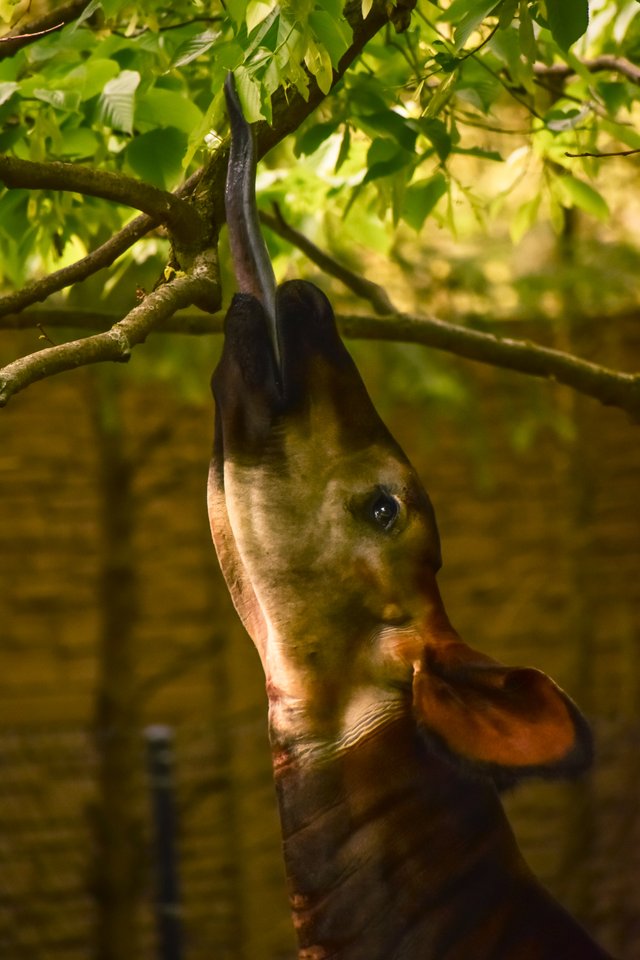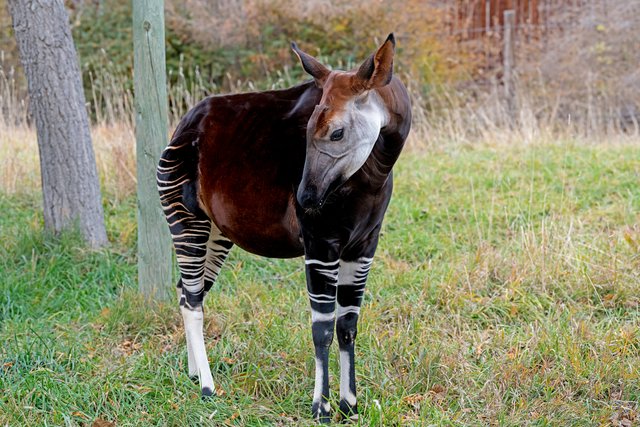

The okapi (Okapia johnstoni) is a hoofed mammal native to the Democratic Republic of the Congo. It is the only living relative of the giraffe, and it shares many physical similarities with its cousin, including a long neck and legs, a long tongue, and a spotted coat. However, the okapi is much smaller than the giraffe, standing only about 5 feet tall at the shoulder.
Okapis are shy and solitary animals that live in dense forests. They are crepuscular, meaning that they are most active at dawn and dusk. Okapis eat a variety of plants, including leaves, shoots, fruits, and flowers. They also eat bark and twigs.
Okapis are critically endangered due to habitat loss and poaching. Their forest habitat is being cleared for agriculture and logging. Okapis are also hunted for their meat and their skin.
The okapi is a fascinating and unique animal that is in danger of extinction. It is important to protect these animals and their habitat so that they can continue to live in the wild.
-Here are some additional facts about the okapi:
.Okapis have a gestation period of 15 months, which is the longest of any hoofed mammal.
.Okapi calves are born with their eyes open and can walk within minutes of being born.
.Okapis are excellent swimmers.
.Okapis communicate with each other using a variety of vocalizations, including grunts, squeals, and barks.
.Okapis are very social animals and live in groups of up to 10 individuals.
.Okapis are an important part of the ecosystem and help to keep the forest healthy by eating plants that would otherwise become overgrown.
In conclusion, the Okapi's elegance and uniqueness are matched only by its elusive nature and the challenges it faces in the wild. This forest-dwelling gem serves as a reminder of the mysteries that still exist within our world, and the importance of protecting and preserving the delicate ecosystems that support such rare and incredible creatures. The Okapi's story continues to unfold, offering both a sense of wonder and a call to action for conservation efforts worldwide.